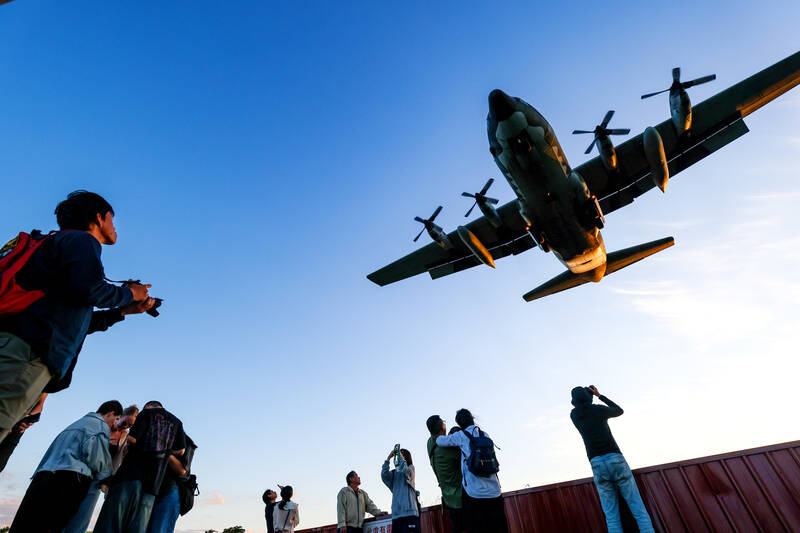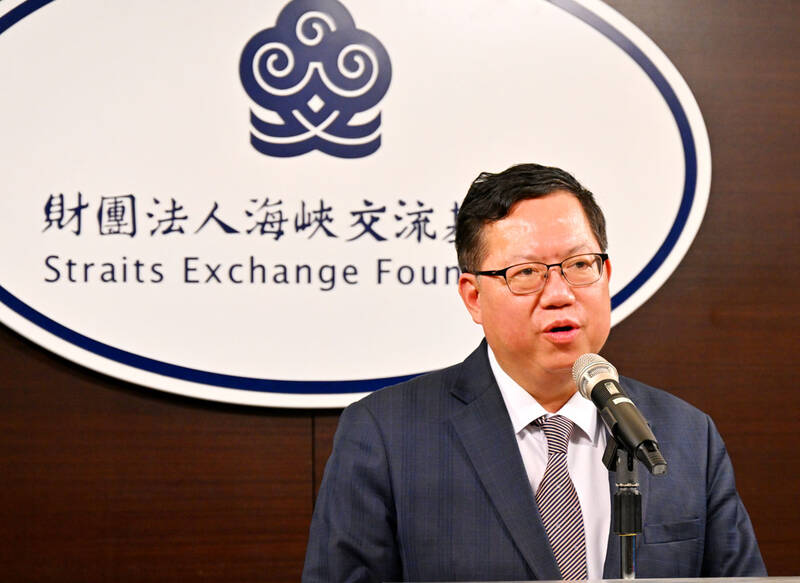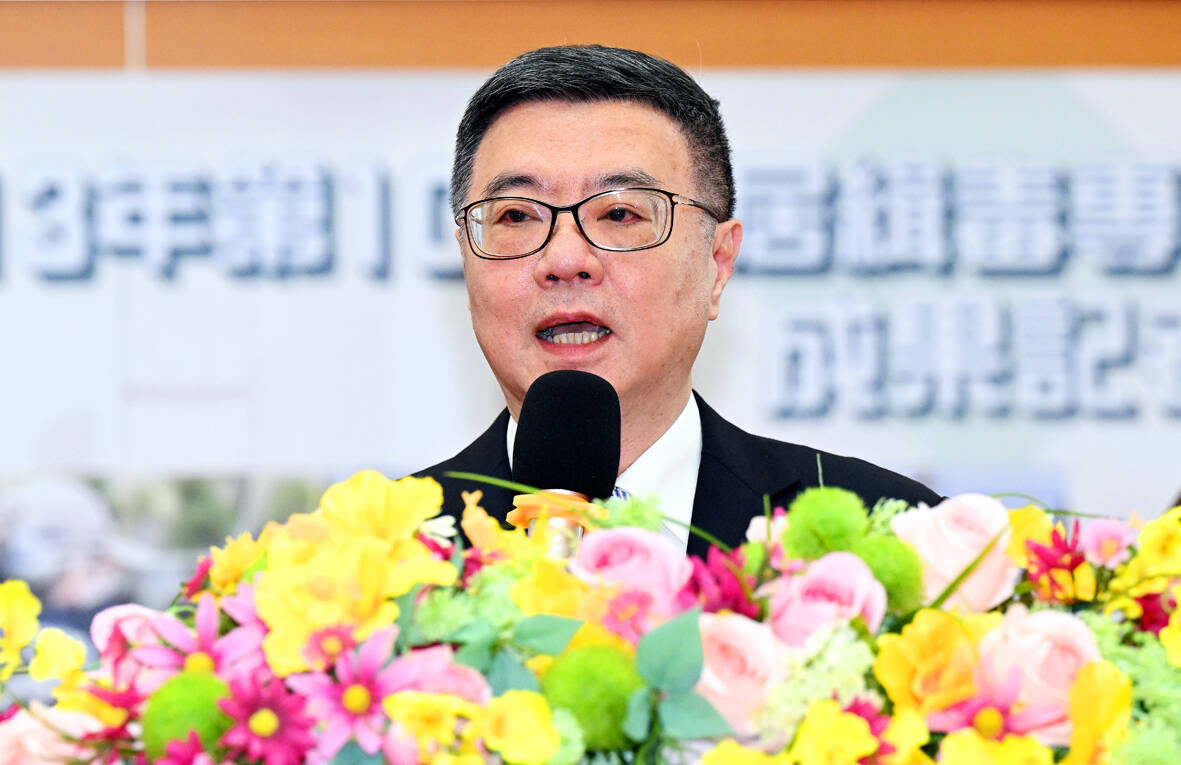With the inauguration of President William Lai (賴清德) complete and everyone moved into their new offices, the Lai administration and Premier Cho Jung-tai (卓榮泰) are getting to work. As in many cases regarding government terminology in the Republic of China, Taiwan (ROC), using “Lai administration” and “premier” are not technically correct, but in English they are functional shorthands that are easy to understand and commonly used.
Constitutionally, Lai is above the five branches of government. Cho is the President of the Executive Yuan, and in theory the cabinet reports to him, and then he in turn to Lai. In practice, the role of Executive Yuan president has been weakened by amendments that allow the president to appoint or dismiss this post at will.
By all accounts Lai was personally involved in picking the cabinet and was almost certainly the final decision maker, so in practice it is the “Lai administration,” and Cho’s role is more like that of a premier or chief of staff.

Photo: EPA-EFE
Weirdly, in English the constitution uses “president” for the heads of all five branches of government, but not in Chinese. Perhaps in 1947 when they wrote it they were still in China and hoped to make it so confusing foreigners would not ask any pesky questions.
WHO TO WATCH
The key figures to watch in government are the ones involved in foreign policy, security, national defense and culture.

Photo: Tien Yu-hua, Taipei Times
In practice for the most part domestic policy and implementation comes out of the technocratic bureaucracy of the Executive Yuan. On the domestic front, aside from a handful of issues such as nuclear power, history books and statues of Chiang Kai-shek (蔣介石), there is little differentiating the two big parties. Much of the Ma Ying-jeou (馬英九) agenda was rebranding Chen Shui-bian (陳水扁) initiatives and Tsai Ing-wen (蔡英文) similarly rebranded much of the Ma agenda with a few tweaks here and there.
The big difference between the two big parties is their views on Taiwanese versus Chinese identity and sovereignty, which in turn influences their approaches to relations with China, the US, Japan, the military and the relative roles of China and Taiwan in culture and history books. This often confuses foreign observers so inculcated in the notion that parties need to be split along left/right and conservative/liberal lines to the point that they will insist on applying these labels to the Democratic Progressive Party (DPP) and the Chinese Nationalist Party (KMT) regardless of the fact that both parties came from left-wing, liberal origins but both now have right-wing and conservative members.
INTERESTING PREMIER PICK

Photo: Liao Chen-huei, Taipei Times
The choice of Cho Jung-tai as a premier surprised almost everyone, at least outside of the DPP. To the general public, Cho was a total unknown or in the category of “I think I’ve heard that name somewhere before.”
To senior officials in the DPP, Cho is very well known. For a time he served as DPP party chair and secretary-general and has served in many senior, but largely invisible to the public roles, like secretary-general of the Executive Yuan and later to the president. He has not run in a public election since 2001.
Intriguingly, Cho is a co-founder of the newest DPP faction, which lacking an official English name I’ve translated as “Vital Spring of Democracy” (民主活水連線). Curiously, this faction is explicitly pro-William Lai, but they opted to not join Lai’s sub-faction of the powerful New Tide faction.
FOREIGN AFFAIRS
Another big surprise is former Taoyuan mayor and vice premier Tseng Wen-tsan (鄭文燦) taking the role of head of the quasi-public Straits Exchange Foundation (SEF), which reports to the Mainland Affairs Council (MAC). Tseng had been on everyone’s short list for premier, but took a much lower position instead. In a previous column we looked at why this might be, with appointing such a heavyweight being a signal to the Chinese Communist Party (CCP) that Lai was serious about talking with them one significant possibility.
Another person on many people’s short list for premier was former Taichung mayor and transportation minister Lin Chia-lung (林佳龍), but he was tapped to be foreign minister instead. Normally, this pick would not draw much scrutiny, but following in the shoes of the extremely effective and highly respected Joseph Wu (吳釗燮), means he will be held to a higher standard than normal. I have met Lin many times and he is very likable, speaks decent English, but comes across in a more self-effacing way than the strong-willed Wu.
Wu will not be far away, however, as he is now head of the National Security Council. It is likely that Wu, Vice President Hsiao Bi-khim (蕭美琴) and perhaps even former president Tsai may have roles to play in foreign affairs, though Tsai is forbidden from leaving the country for three years on national security grounds.
DEFENSE
Another pick that has garnered a lot of attention is Defense Minister Wellington Koo (顧立雄), only the seventh civilian to hold the post. Koo was originally famous as a lawyer taking on many high profile cases, then as head of the Financial Supervisory Commission and then in 2020 he was appointed to head the National Security Council. From his actions and comments from the president, it appears that Lai is looking for Koo to make some serious changes.
Judging by his comments, I strongly suspect he wants to revive the Overall Defense Concept (ODC) of former chief of general staff of the ROC Armed Forces Lee Hsi-ming (李喜明) that leans in heavily on lower-cost, highly mobile weapons and asymmetric tactics that are popular with the Americans, which the military moved away from after Lee left in 2019 and back towards bigger, costlier and flashier weapons systems.
There have been a spate of articles featuring various military or retired military officers attacking Koo for some of his reforms and plans. However, all but one of these articles was in pan-blue media, so it is hard to determine if these opinions are widespread in the military or not.
Donovan’s Deep Dives is a regular column by Courtney Donovan Smith (石東文) who writes in-depth analysis on everything about Taiwan’s political scene and geopolitics. Donovan is also the central Taiwan correspondent at ICRT FM100 Radio News, co-publisher of Compass Magazine, co-founder Taiwan Report (report.tw) and former chair of the Taichung American Chamber of Commerce. Follow him on X: @donovan_smith.

The canonical shot of an East Asian city is a night skyline studded with towering apartment and office buildings, bright with neon and plastic signage, a landscape of energy and modernity. Another classic image is the same city seen from above, in which identical apartment towers march across the city, spilling out over nearby geography, like stylized soldiers colonizing new territory in a board game. Densely populated dynamic conurbations of money, technological innovation and convenience, it is hard to see the cities of East Asia as what they truly are: necropolises. Why is this? The East Asian development model, with

June 16 to June 22 The following flyer appeared on the streets of Hsinchu on June 12, 1895: “Taipei has already fallen to the Japanese barbarians, who have brought great misery to our land and people. We heard that the Japanese occupiers will tax our gardens, our houses, our bodies, and even our chickens, dogs, cows and pigs. They wear their hair wild, carve their teeth, tattoo their foreheads, wear strange clothes and speak a strange language. How can we be ruled by such people?” Posted by civilian militia leader Wu Tang-hsing (吳湯興), it was a call to arms to retake

This is a deeply unsettling period in Taiwan. Uncertainties are everywhere while everyone waits for a small army of other shoes to drop on nearly every front. During challenging times, interesting political changes can happen, yet all three major political parties are beset with scandals, strife and self-inflicted wounds. As the ruling party, the Democratic Progressive Party (DPP) is held accountable for not only the challenges to the party, but also the nation. Taiwan is geopolitically and economically under threat. Domestically, the administration is under siege by the opposition-controlled legislature and growing discontent with what opponents characterize as arrogant, autocratic

When Lisa, 20, laces into her ultra-high heels for her shift at a strip club in Ukraine’s Kharkiv, she knows that aside from dancing, she will have to comfort traumatized soldiers. Since Russia’s 2022 invasion, exhausted troops are the main clientele of the Flash Dancers club in the center of the northeastern city, just 20 kilometers from Russian forces. For some customers, it provides an “escape” from the war, said Valerya Zavatska — a 25-year-old law graduate who runs the club with her mother, an ex-dancer. But many are not there just for the show. They “want to talk about what hurts,” she